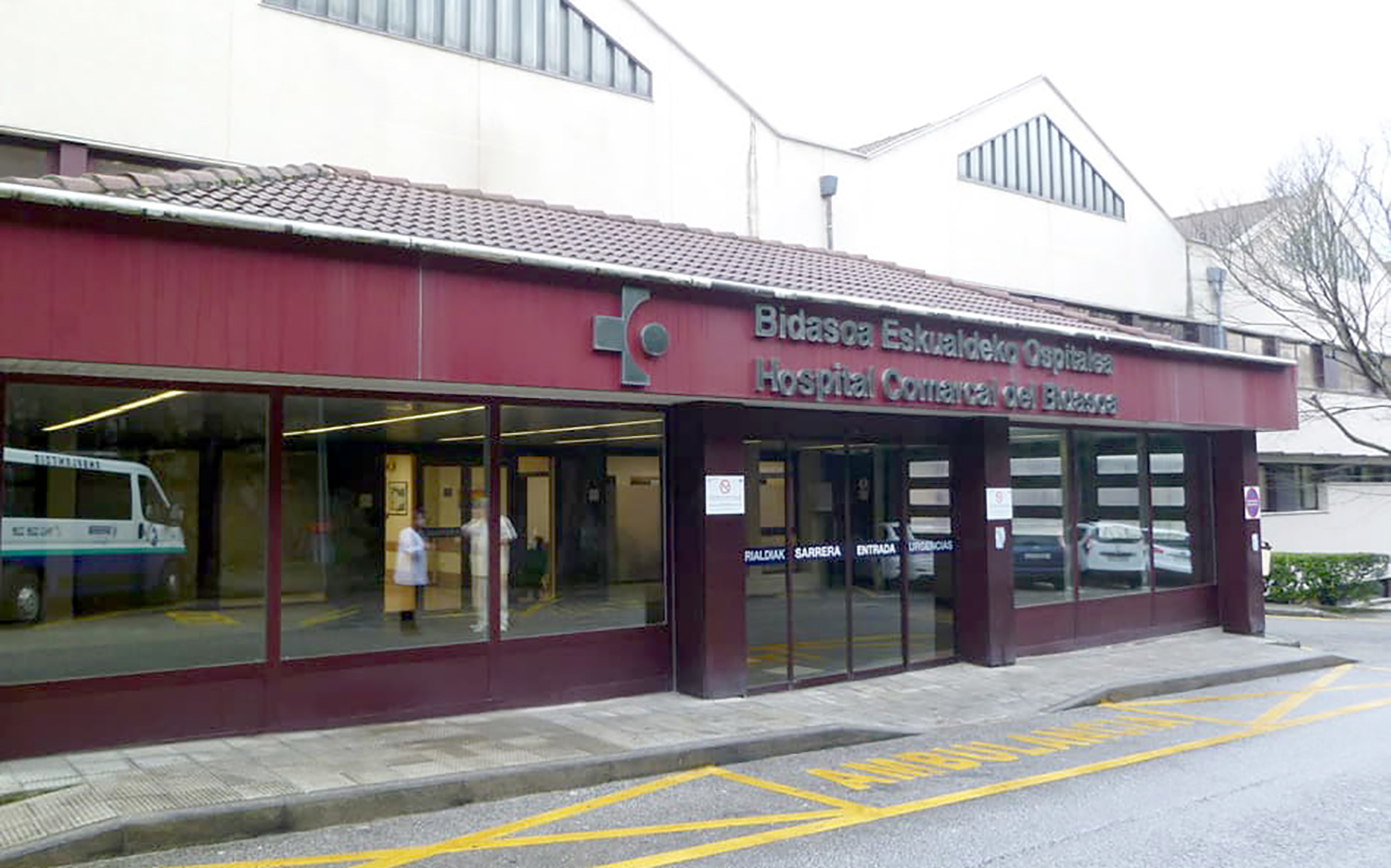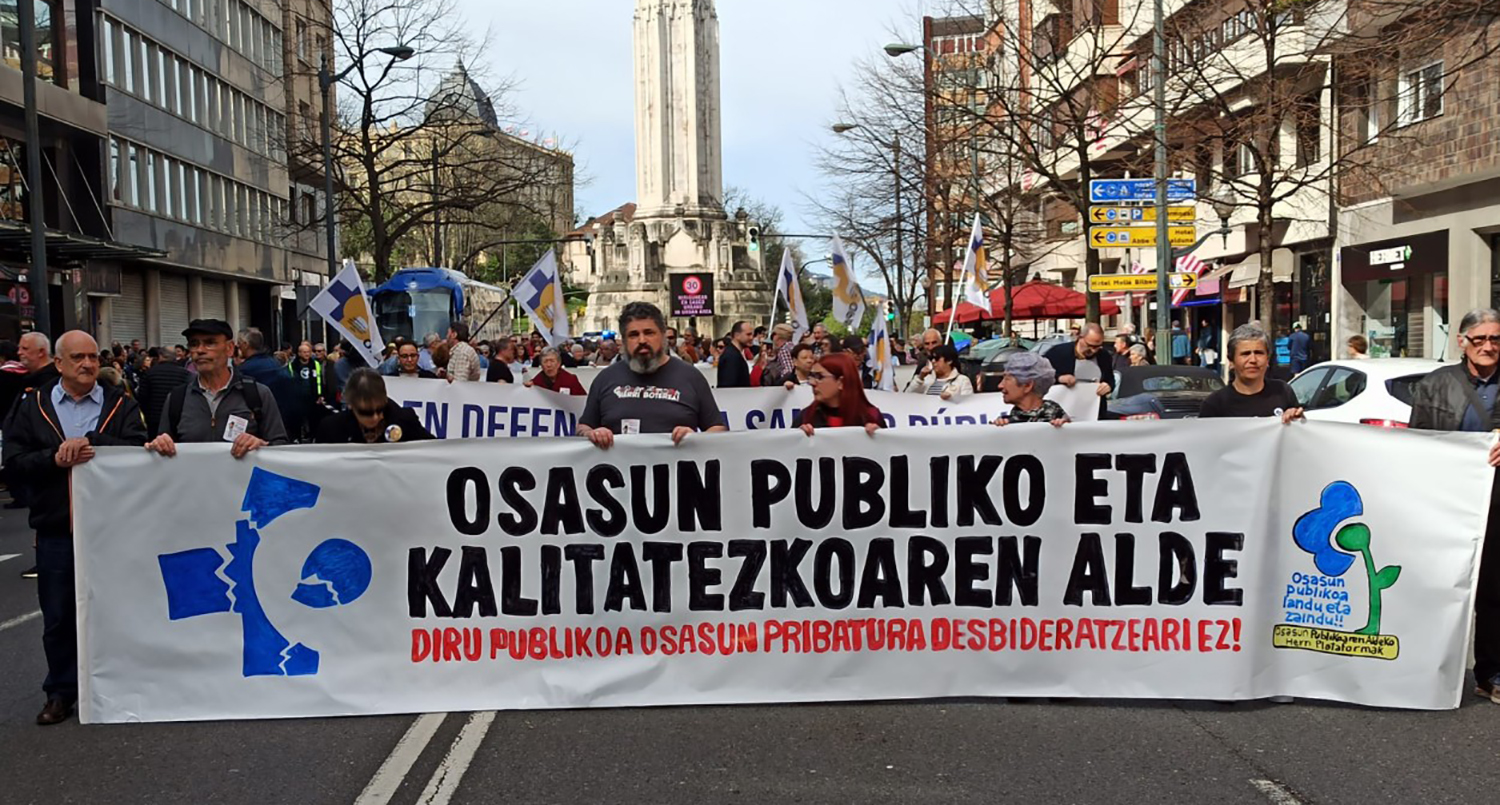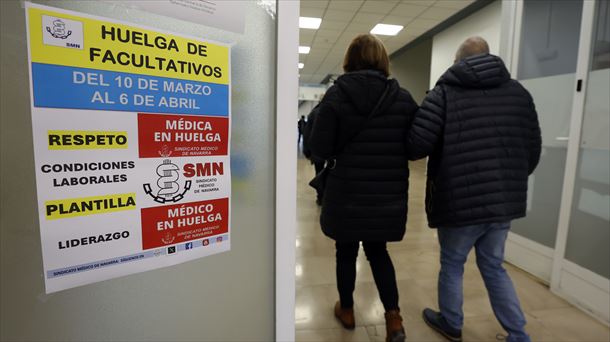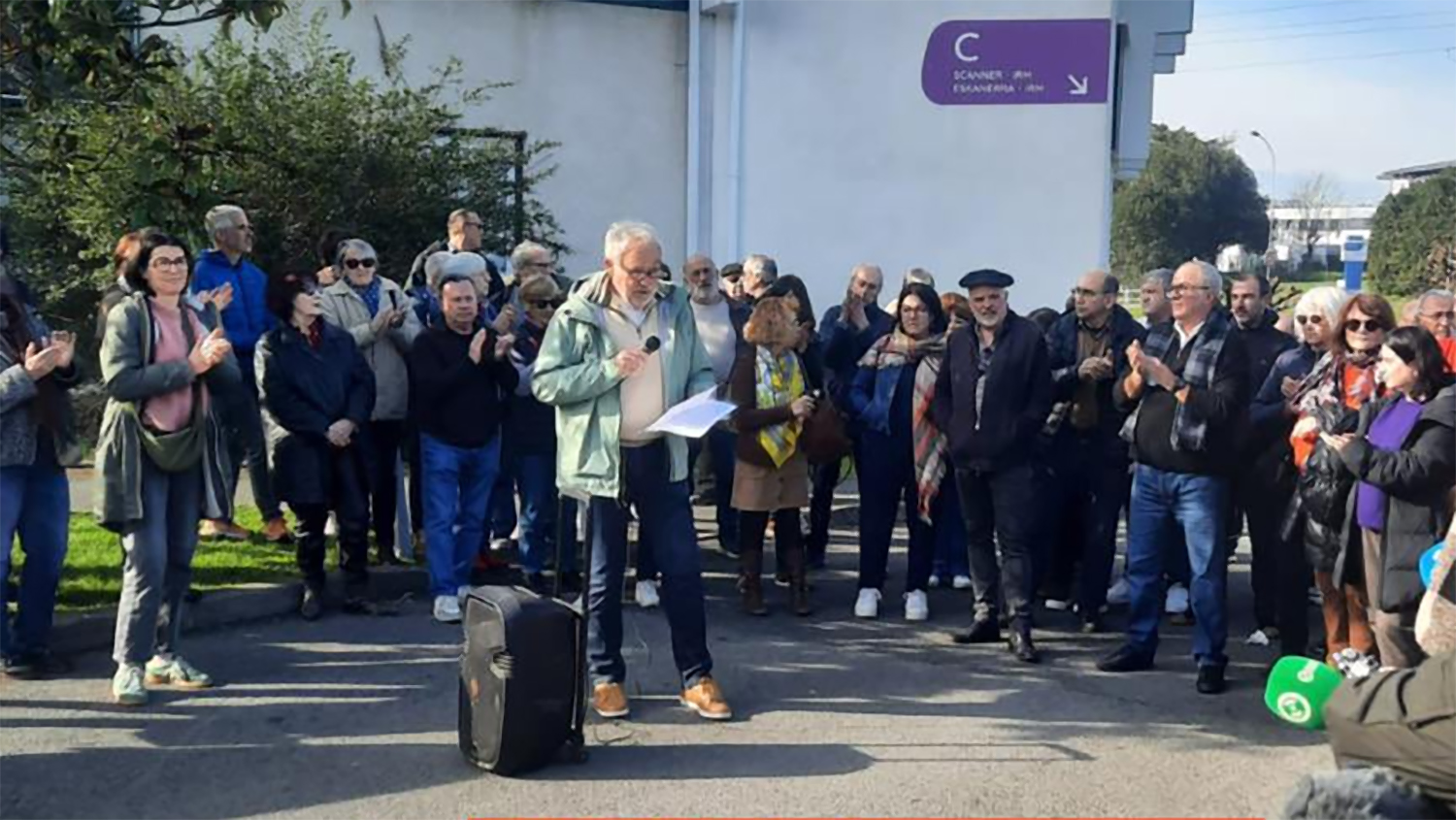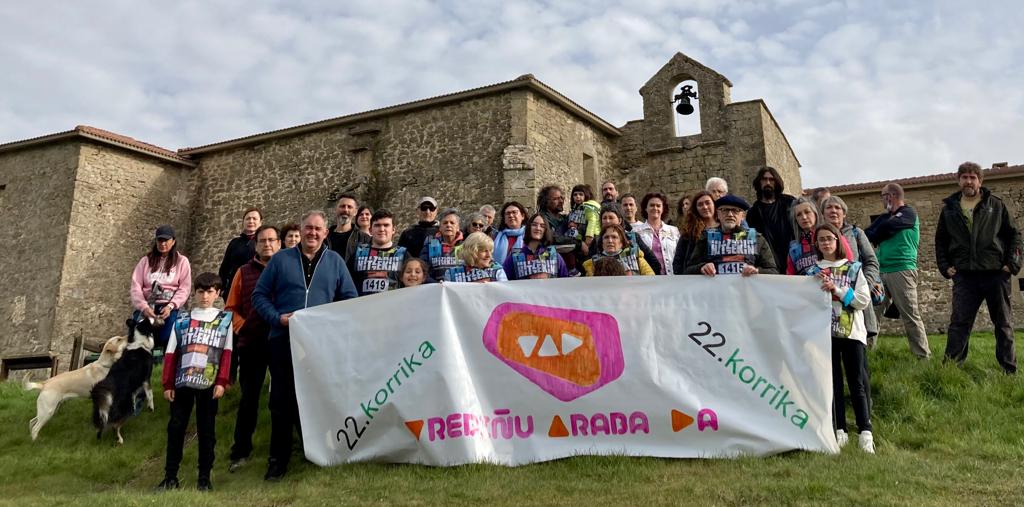- Is your madness favorable to life? Then there is no problem, the risk is to lose the social connection"
- Lucía Gricman, psychologist and Argentinian, holds in the therapeutic center of Buenos Aires very fruitful meetings with people with mental illness. We've talked about insanity, medicalization and psychoanalysis.
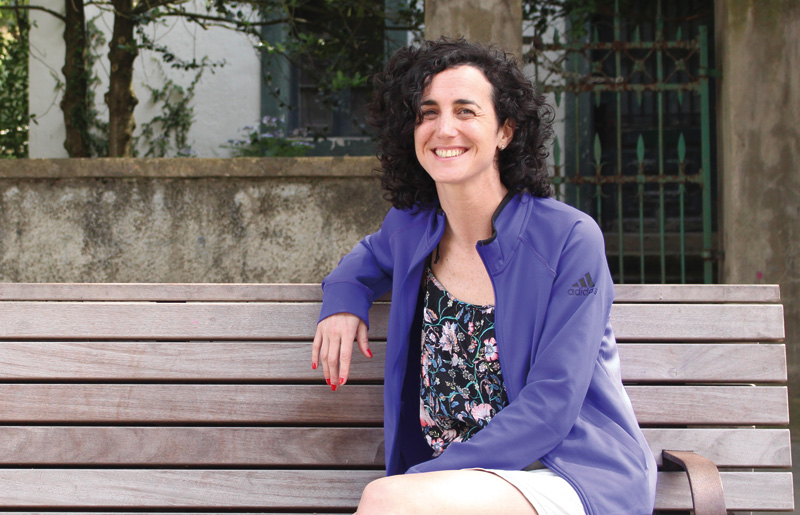
What exactly are you doing in your home?
We performed an intensive therapeutic stay with patients who have previously been admitted to a psychiatric center, a kind of transition to social integration. When a person is at risk for himself or others, he enters a center and when it disappears he is willing to come to our center. In addition to rehabilitation (to help organize life), we conduct workshops to promote creativity and expression (through puppets, radio…), as from creativity you can recover the link with society.
Is creativity the key?
Insanity can lead you to lose the social bond, and being tied to society does not mean being economically productive, but wanting to relate to other people; that special thing that happens in the mind (which leads some to illness), creativity is the way to bring what is so yours to a collective level, to make your contribution to others. I remember a person with Paranoid delusions created a comic book about those delusions; he did something about that madness that isolated him from society, to share it with others.
Some say that madness does not exist...
I think of a phrase by Truman Capote: “You don’t have to be crazy to live here, but it makes things easier.” I usually talk to patients. To start with, we take away a despicable connotation from the crazy word, it's not a bad thing, we can all go crazy in concrete situations. But the relativism of the statement “we are all crazy” is silly, because your madness can lead you, for example, to compromise yourself and others. What are we all crazy about? If you want to believe it that way, but when does your insanity depart from life? That is the question; as Nietzsche said, the balance is life: Is your madness favorable to life? Then there is no problem, but if it moves away from life (from socialization) we have to intervene. That is our criterion.
Is that healing?
That is, your madness lets you live. What we have to do is keep the person as close as possible to their community. And I don't mean being always happy, because curing is not suffering, but having the means to take it and face it.
Are we increasingly tending to pathologize everything?
Yes, especially in childhood, and it is very serious, because childhood is psychiatric and medicalised. The trend comes from the United States, a gigantic drug company, and we end up medicating children's most basic behaviors. Having a child alive is a symptom of good health, but it is medicalized to be at rest. The centers are assumed, because the social problems that young people have are eaten in schools and the usual process is to bring the ‘difficult’ child to the psychological cabinet, hence to the psychiatrist and return to the classroom from the psychiatrist. It doesn't happen to us that we have to rethink the school.
“Instead of rethinking school, it’s easier to pathologize and meditate the student. We transform social problems into individual ones and leave out what doesn’t fit”
It's easier to pathologize to the student and keep the status quo as it is. We transform social problems into individual ones and leave out what doesn't fit, with madness the same thing happens. Do you know what a patient told us in the assembly? They're more sensitive, more sensitive to this system that wants us sad and messy, and that's why they're in that situation.
Organizing patient assemblies is your responsibility.
At first they didn't understand that I said I was one more, that everyone had a voice and space in the assembly. We rethink ourselves as political subjects, as citizens, and we talk about news and news, what the media wants to sell to us… Because thinking about what happens in society is also therapeutic: participating in a human collective cures us, it makes us want to live again. We talk a lot about minorities, for example, groups that are considered different from the majority, including our own. A recently very delirious patient tells us that he feels the need to help; in the assembly people first said that he should be cured, and in the end we came to the conclusion that helping others can be therapeutic. I can be alone and sad, but if I can do well to another, I will feel better.
Or when we talked about the massacre that took place in the Orlando nightclub, we saw that the media always have the same behavior, blaming a madman, individually, instead of thinking that behind there is a more serious social problem. But we talked about the ease of access to arms in the United States, and to me it was a huge achievement of the stigma that it's dangerous for patients to disassociate insanity.
“Belonging or not being a party is the collective pathology we live in, the risk of exclusion. In the end we are all out, because they want to be normal and nobody gets that fiction.”
We also discuss what it means to be sick and to be sick. I told them that I was recently told that I had asthma and that, by medical means, all the doctors insisted that I was asthmatic. What about that label, and what do I do about it? It has served us to think of labels, which do not have to constantly present themselves to people as crazy, as if they were wrong and all others good, as if it were not part of life that in some moments were good and in others bad.
Is today's society crazy?
A professor of mine told me that one of the most serious things in today's society is normality. There's a strong boundary between being normal and not being, that's the great fiction that's generated by today's society. Belonging or not is the collective pathology that we live in, because we have a very bad risk of staying out and because everything is psychopathological so much that it is very easy to stay out. In the end, we're all out, because we want to be normal, and nobody gets that fiction. When I've been left out, what should I do, try again to be normal, or learn to play from my difference?
Argentina is the territory of psychoanalysis.
Some people think that psychoanalysis is about staying quiet and listening to people, and it's not. Psychoanalysis is an ethical and political attitude to listen to the world, and it is an anti-capitalist practice, because it allows you to rethink, live and reflect on whether the decisions you make are related to what you want.
Is psychoanalysis the best way to deal with problems?
When I have talked to criminals who have ended up in a psychiatric hospital, I often see in them a social problem that has left out of the world beyond the mental illness, which has also influenced the path they have taken. We should therefore also respond to the problem from a social point of view, in each case. In Argentina, for example, the social imbalance is very large and we cannot listen to someone and morally judge by their actions, whether that person has never found a social haven or whether he has been educated in violence. Among the marginalized young Argentinians, the base of pasta [similar to cocaine] has spread widely and with what has fallen into the claws of the drug you do not have much time to think, you have to act. These are problems that go beyond psychoanalysis or any other individual therapy.
In each case, the psychoanalytical, psychological, psychiatric, social perspective can be combined...
There are many ways to deal with problems, there are psychologist psychoanalyst, psychotherapist psychiatrist, cognitive-behavioral therapies… If a quick solution works, great… Psychoanalysis invites you to ask yourself a little more, but if you don’t have questions, go ahead with your life! The point is that in Argentina we have a great need to ask ourselves. My theory is that we are a society built on the genocide of the communities of origin, the children of Europeans, and that we have a big identity problem that leads us to wonder where we come from, what we do, what we are…
Pazienteek Donostiara joan behar dute arreta jasotzeko. Osasun Bidasoa plataforma herritarrak salatu du itxierak “are gehiago hondatuko” duela eskualdeko osasun publikoa.
EAEn BAMEa (famili medikuen formazioa) lau urtetik hiru urtetara jaistea eskatu du Jaurlaritzak. Osakidetzaren "larritasunaren" erantzukizuna Ministerioari bota dio Jaurlaritzako Osasun sailburu Alberto Martinezek: "Ez digute egiten uzten, eta haiek ez dute ezer... [+]
Sare sozialen kontra hitz egitea ondo dago, beno, nire inguruan ondo ikusia bezala dago sare sozialek dakartzaten kalteez eta txarkeriez aritzea; progre gelditzen da bat horrela jardunda, baina gaur alde hitz egin nahi dut. Ez ni optimista digitala nauzuelako, baizik eta sare... [+]
Berrogei urte dira Euskal Herrian autismoaren inguruko lehen azterketak eta zerbitzuak hasi zirela. Urte hauetan asko aldatu da autismoaz dakiguna. Uste baino heterogeneoagoa da. Uste baino ohikoagoa. Normalagoa.
Itxaron zerrendak gutxitzeko Osasunbideak hartutako estrategiak gaitzetsi ditu Plataformak
Endometriosiaren Nazioarteko Eguna izan zen, martxoak 14a. AINTZANE CUADRA MARIGORTAri (Amurrio, 1995) gaixotasun hori diagnostikatu zioten urtarrilean, lehen sintomak duela lau urte nabaritzen hasi zen arren. Gaitz horri ikusgarritasuna ematearen beharraz mintzatu da.
La bajona kolektibo kide Heiko Elbirak salatu du psikiatriak zisheteroarautik aldentzen diren erotikak kontrolatu nahi dituela.
Barakaldoko ospitaleko larrialdi zerbitzuan sufritzen ari diren "saturazioa larria" dela ohartarazi du sindikatuak. Pazienteak korridoreetan artatu dituztela eta krisia kudeatzeko "behar adina langile" ez dagoela salatu du. Errealitate horren aurrean... [+]
Astelehenean abiatu da sindikatuak deitutako greba eta apirilaren 6 arte luzatuko da. Lan-gainkarga salatu eta baldintzak hobetzeko eskatu dute, baita mediku egoiliarrei karrera profesionala aitortzea ere.
Alberto Martinez Eusko Jaurlaritzako Osasun sailburuak argi dio: ez ditu mediku euskaldunak aurkitzen, eta euskarazko osasun arreta ezin da bermatu mediku egoiliar (formazioan dauden espezialista) gehienak kanpotarrak direlako. Mediku euskaldunak bilatzea perretxikotan joatea... [+]
Soco Lizarraga mediku eta Nafarroako Duintasunez Hiltzeko Eskubidea elkarteko kidearen ustez bizi testamentuak heriotza duin bat eskaini eta familiari gauzak errazten dizkio.
Gauez ia aste osoan ateak itxita izaten ditu Donibane Lohizuneko osasun zentro horretako larrialdi zerbitzuak. Herri Berri udal oposizio taldeak deituta, mobilizazioei ekin diete herritarrek eta jadanik 3.000 sinadura bildu dituzte zerbitzu "iraunkor eta eraginkorra"... [+]
Bizilagunek "egia eta politika" merezi dutela adierazi dute, oraindik konponbiderik bilatu ez zaizkien arazo ugari edukitzen jarraitzen baitute. Ikasketei eta osasun arretari loturiko arazoak nabarmendu dituzte.











